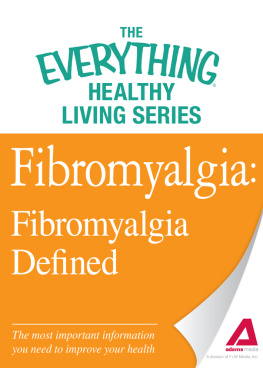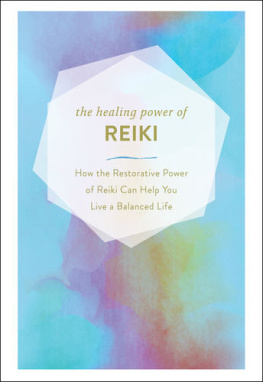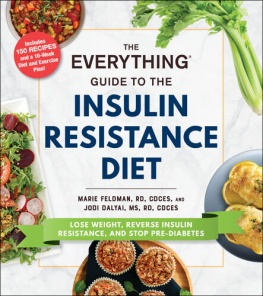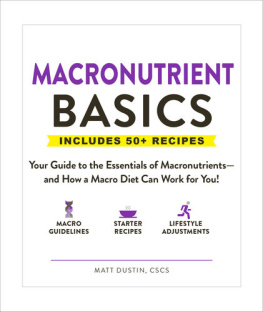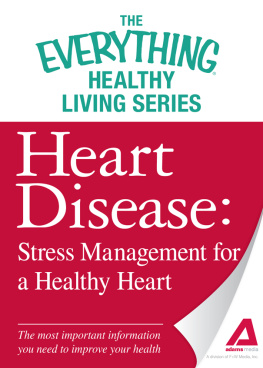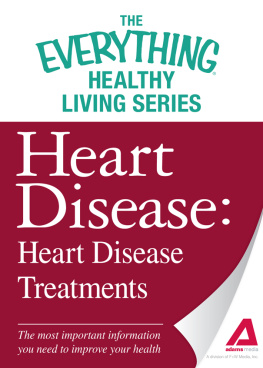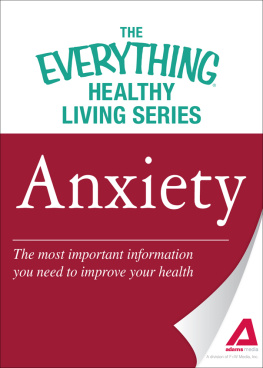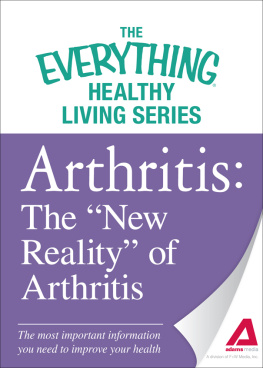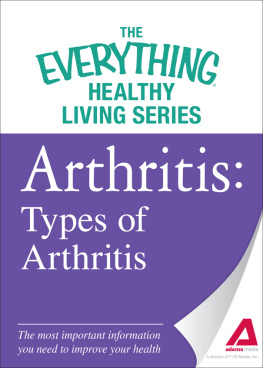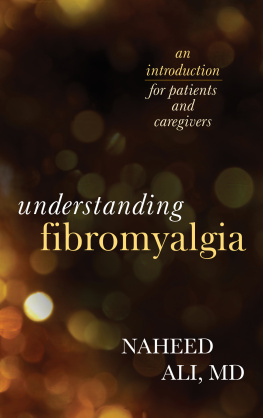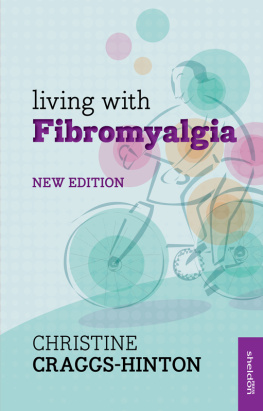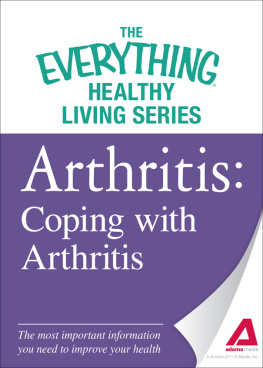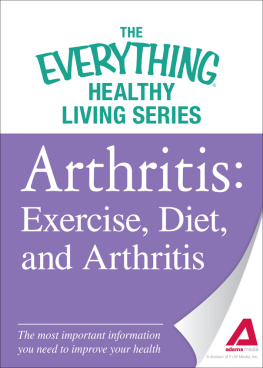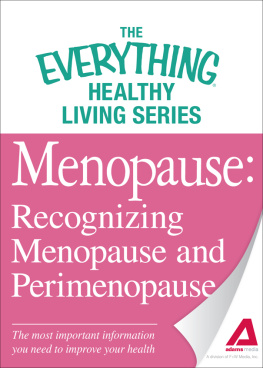Adams Media, an imprint of Simon & Schuster, Inc.
For more than 10 years, millions of readers have trusted the bestselling Everything series for expert advice and important information on health topics ranging from pregnancy and postpartum care to heart health, anxiety, and diabetes. Packed with the most recent, up-to-date data, Everything health guides help you get the right diagnosis, choose the best doctor, and find the treatment options that work for you.
The Everything Healthy Living Series books are concise guides, focusing on only the essential information you need. Whether youre looking for an overview of traditional and alternative migraine treatments, advice on starting a heart-healthy lifestyle, or suggestions for finding the right medical team, theres an Everything Healthy Living book for you.
Fibromyalgia
When it comes to health, knowledge is your greatest ally. Nowhere is that more true than when youre dealing with a chronic condition, especially one as complex as fibromyalgia. Thats why this book is so important to people who have this condition.
If youre like most people, finding out you have fibromyalgia is only the first small step on a long journey. The diagnosis gave you a label to apply to your pain and fatigue, and it provided an explanation for why you cant seem to get a good nights rest. It helped to explain why you had no energy for long shopping sprees and why you hurt when someone hugged you too hard. But everyday living with fibromyalgia is another story, one that is often fraught with challenges, despair, and great difficulty.
Like anything, learning to live successfully with fibromyalgia takes time and practice. At first, you may bemoan the loss of your former self. You wish you still had the energy to play tennis. You wish you didnt have so many medical appointments. You wish you could still persevere in the career that you worked so hard to build. As the reality of your illness sinks in, however, you begin to realize that changes are necessary, and that the things you do can make a major impact on how well you feel. Gradually, you come to realize that taking care of your health now takes precedence over anything else you do in your life.
As of now, no one has all the answers to the mysteries of fibromyalgia. For instance, we still have no idea why anyone gets fibromyalgia. What is the biological mechanism or process that sets off the condition in the first place? And why does one person have a car accident and come out okay, while another one develops fibromyalgia? Those questions are best left to scientists who are working hard to improve their understanding of this perplexing condition.
What we do know now, though, is that the way you live and the choices you make can have a huge impact on how well you cope with fibromyalgia. For instance, we know that the ability to handle daily stress and difficult emotions can make a major difference in the severity of your pain. We also know that making the time and effort to both exercise and rest every day can help improve your functioning. In addition, we know that practicing good sleep hygiene which includes treating conditions like sleep apnea can greatly improve your sleep, which in turn will lessen your pain and fatigue.
No, its not at all easy to live with fibromyalgia and its myriad symptoms and associated conditions. But the good news is that our knowledge of this condition and the treatment options we have is growing every year. In the meantime, people who have it must learn as much as they can about fibromyalgia and then work hard to make sure they are getting the best possible care.
If youd like to learn more about fibromyalgia, check out The Everything Health Guide to Fibromyalgia , available in print (978-1-59337-586-7) and eBook (978-1-60550-334-9) formats.
Fibromyalgia Defined
Most of us know the unpleasantness of a sore neck, a stiff back, or an achy muscle. And we know that awful feeling that comes with not getting a good nights rest. Most problems go away after a few days, but if you have fibromyalgia syndrome (FMS), the pain and fatigue dont go away so easily. With fibromyalgia, these symptoms persist, often for years. For some, the pain can be life altering.
What Is Fibromyalgia?
Fibromyalgia is a medical syndrome characterized by widespread pain, sleep disturbance, tender points around the body, and a host of other symptoms that range from irritable bowel syndrome to depression. It is a baffling condition and one that is hard to diagnose, commonly misdiagnosed, and difficult to treat. The cause remains a mystery, a cure elusive.
Symptoms vary widely and can change from day to day for individual patients. Most people are able to live with the disease by treating the symptoms. But in some cases, fibromyalgia can be downright debilitating. Some people have given up jobs, abandoned hobbies, and lost relationships because of fibromyalgia.
For years, people questioned whether fibromyalgia actually existed. Even today, there are skeptics who wonder whether the syndrome is real, despite the fact that millions of people suffer from these symptoms. But modern medical research has demonstrated in recent decades that fibromyalgia is very real and that people who have it have measurable differences of chemicals and substances in their bodies. These substances are associated with a hypersensitivity to pain.
Like headaches, fibromyalgia may be a symptom complex, with a number of possible causes. Just as headaches can be caused by sinus infections, migraines, muscle tension, or tumors, fibromyalgia may be associated with a neck injury, infections, stress, genetics, or compression of the upper spinal cord. Since each cause may require its own unique treatments, what works for one FMS patient may not work for others.
Fact
In the early twentieth century, doctors called fibromyalgia fibrositis. The term comes from the Latin roots for muscle (fibro) and inflammation (itis). But over time, doctors came to realize that fibrositis was inaccurate because the condition didnt involve any inflammation. It wasnt until the late 1970s that the term fibromyalgia was used. The word blends the Latin term for fibrous tissue (fibro) with the Greek terms for muscle (myo) and pain (algia), and is much more accurate.
Confirming you have fibromyalgia is the first part of the struggle. Achieving relief from it is the next big challenge and an ongoing one. These days, most people manage fibromyalgia with a host of different treatments that may include medications, diet and exercise, physical therapy, and alternative medicine. Efforts to restore sleep and alleviate depression have become routine therapies for fibromyalgia, too. Like the symptoms themselves, the treatment regimen varies, depending on the patient.
The key to living well with fibromyalgia is knowledge. Knowing as much as you can about this condition can help you minimize pain, improve sleep, and develop coping strategies that lessen the toll of fibro on every front. It will also enable you to better manage your fibromyalgia and help you continue to live a rewarding and independent life.

